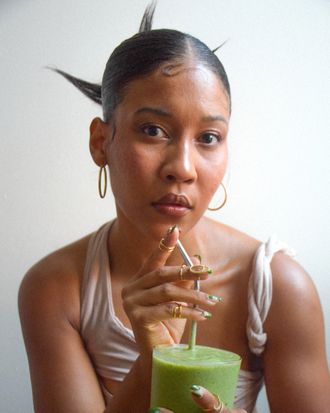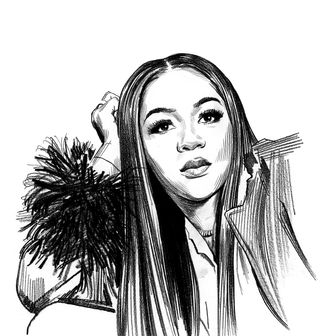
Annya Santana created Hood Health as a platform to celebrate where wellness meets the culture. The Cut spoke to Santana about how she’s making wellness accessible.
I was born and raised in the Bronx. Everything I do goes back to culture, my culture. It’s frustrating to see how practices derived from cultures of color get whitewashed as “wellness.” Like yoga and turmeric (both come from India), matcha (Japan), quinoa (Peru and South America) — none of these things are “discoveries” that white people found, but it’s all the things they’ve incorporated into wellness and sold back to us with a way more expensive price tag. I really am sick of the white-savior complex. And it isn’t just whitewashing, it’s detrimental to communities. It’s removing people from their own culture and also screwing up economies in other countries. People in Peru can’t even afford to eat their own quinoa crops because it’s such a popular food in the U.S. It destroys cultures in more ways than just overcharging consumers, it affects the people who produce it in their home countries.
That’s why I created my own community: Hood Health, where culture and wellness collide. At Hood Health, we educate our community on what it means to really be well, through health education, nutrition, and mindfulness. We hope to give people a proper understanding and foundation on where to stand in wellness. For instance, I want to have conversations with real people about why we should incorporate turmeric and where it comes from, so they understand it from the source instead of having white saviors try to explain someone else’s culture.
Food has been a part of my identity for all of my life. Growing up, the kitchen was the hub, the hangout spot, for my family. Traditional Dominican dishes were the norm: rice and beans, stew chicken with avocados, sweet plantains, stewed beans, yuca, the list goes on. Not the norm: my vegan uncle. He went plant-based in 1989, and we dubbed him our own “meat causes cancer conspiracy guy,” because back then that’s what it was.
I reconsidered his plant-based journey when I hit my early 20s. I started getting severe acne. One dermatologist visit, I was asked, “What are you eating?” It was a question that I never thought about asking myself. He was like, “Look, I’ll give you some topical cream for your hyperpigmentation and the redness, but for the rest you need to watch what you’re putting in your body.” I went home and spiraled. I made up my mind: I was going to change.
I had a very hard time at the beginning. I was the one at the family functions just eating the green salad that no one touches. Finally, one Christmas, I was fed up and something had to give. I called a family meeting and told them we had to pivot, I wanted my family to join me in my journey. My mom told me I was right and she took the initiative to veganize one of our traditional dishes, sancocho. To this day, I don’t know how she does it, but it changed my family’s mind-set because it was something that still tasted good to everyone. They learned that you don’t change for wellness, you make wellness work for you. We’re tied to our foods and our culture, but we have to make it work for us and our lives. When they were honest about who they were at their core, that’s when it clicked. Now, both of my parents are plant-based and my brother recently went vegan, too. As a family who values the kitchen for more than just nutrition, but for memories, too, this was really important to me.
That’s where Hood Health comes from: the intersection of culture and wellness. We want to feed knowledge into our community that derives from people who experience these traditions as a part of their heritage. Wellness has become a symbol of elitism. A green juice for $8 and a salad for $20 is considered healthy, but the everyday person can’t experience that because they don’t have the socioeconomic structure to support that. So if expensive salads aren’t going to make us healthier, what is going to make us healthier is learning how to do those things for ourselves. We want to give people a foundation for true holistic wellness in a real functional way, whether it’s implementing small daily movement or having the knowledge to create healthier foods at home.
I truly hope that people who come to Hood Health feel like they belong. It’s not a place where they have to change themselves to be a part of it; it’s a community where everyone can figure out how to be a better version of themselves and practice being a better version of themselves in an honest way, and not somewhere that they have to try and fit into a mold. Hood Health is that safe space, for us and by us.


